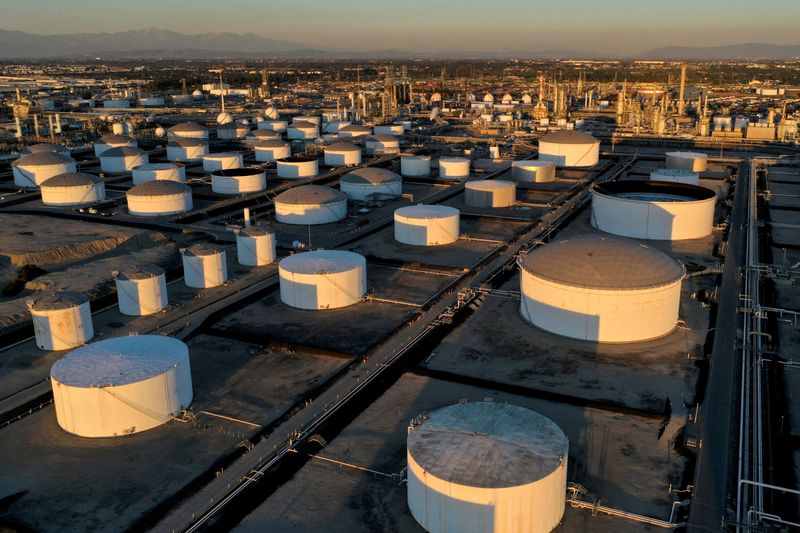By Laila Kearney
NEW YORK (Reuters) -Oil prices slipped lower on Wednesday as a rate cut announcement from the Federal Reserve raised worries about the health of the U.S. economy, while investors largely shrugged off a inventory decline that they attributed to the impact of short-lived weather.
futures for November settled at $73.65 a barrel, losing 5 cents, while WTI crude futures for October settled at $70.91 a barrel, falling 28 cents.
The U.S. central bank cut interest rates by half a percentage point, a larger decrease in borrowing costs than many expected, stoking concern the central bank may see a slowing job market. Interest rate cuts typically boost economic activity and energy demand, yet a weaker labor market can slow the economy.
Meanwhile, crude inventories fell by 1.6 million barrels to 417.5 million barrels in the week ending Sept. 13, the Energy Information Administration (EIA) said, compared with analysts’ expectations in a Reuters poll for a 500,000-barrel draw.
The crude draw, which resulted in inventories dropping to the lowest in a year, helped limit price declines.
While the EIA’s report was more supportive of oil prices than Tuesday’s American Petroleum Institute figures, investors likely linked the drawdown to Hurricane Francine, a short-lived event, said Bob Yawger, director of energy futures at Mizuho bank.
“The problem with a ‘Hurricane” report is that the numbers have a tendency to boomerang back in the opposite direction in the next week’s report, after oil infrastructure comes back online,” Yawger said.
Gasoline and distillate inventories, meanwhile, rose slightly last week.
Brent had staged a recovery since Sept. 10 when it fell below $70 to its lowest since December 2021. It faces resistance at around $75 due to weak global refinery margins that signal sluggish demand, he added.

Earlier in the session, oil found support from risks of increased violence in the Middle East disrupting supply after Hezbollah accused Israel of attacking the militant group with explosive-laden pagers in Lebanon. Hezbollah promised to retaliate against Israel, whose military declined to comment on the blasts.
“The end of peak summer demand and a negative shift in traders’ sentiment have contributed to the price drop, though potential conflicts in the Middle East still pose a risk of supply disruptions,” said Mazen Salhab, Chief Market Strategist MENA at BDSwiss.

